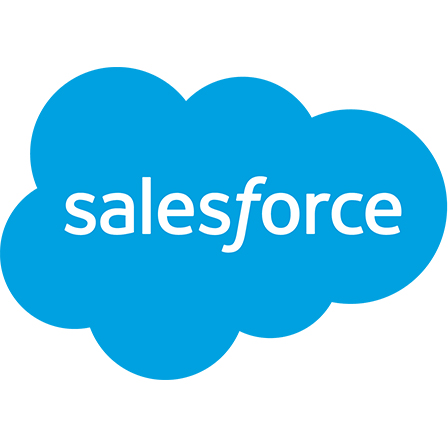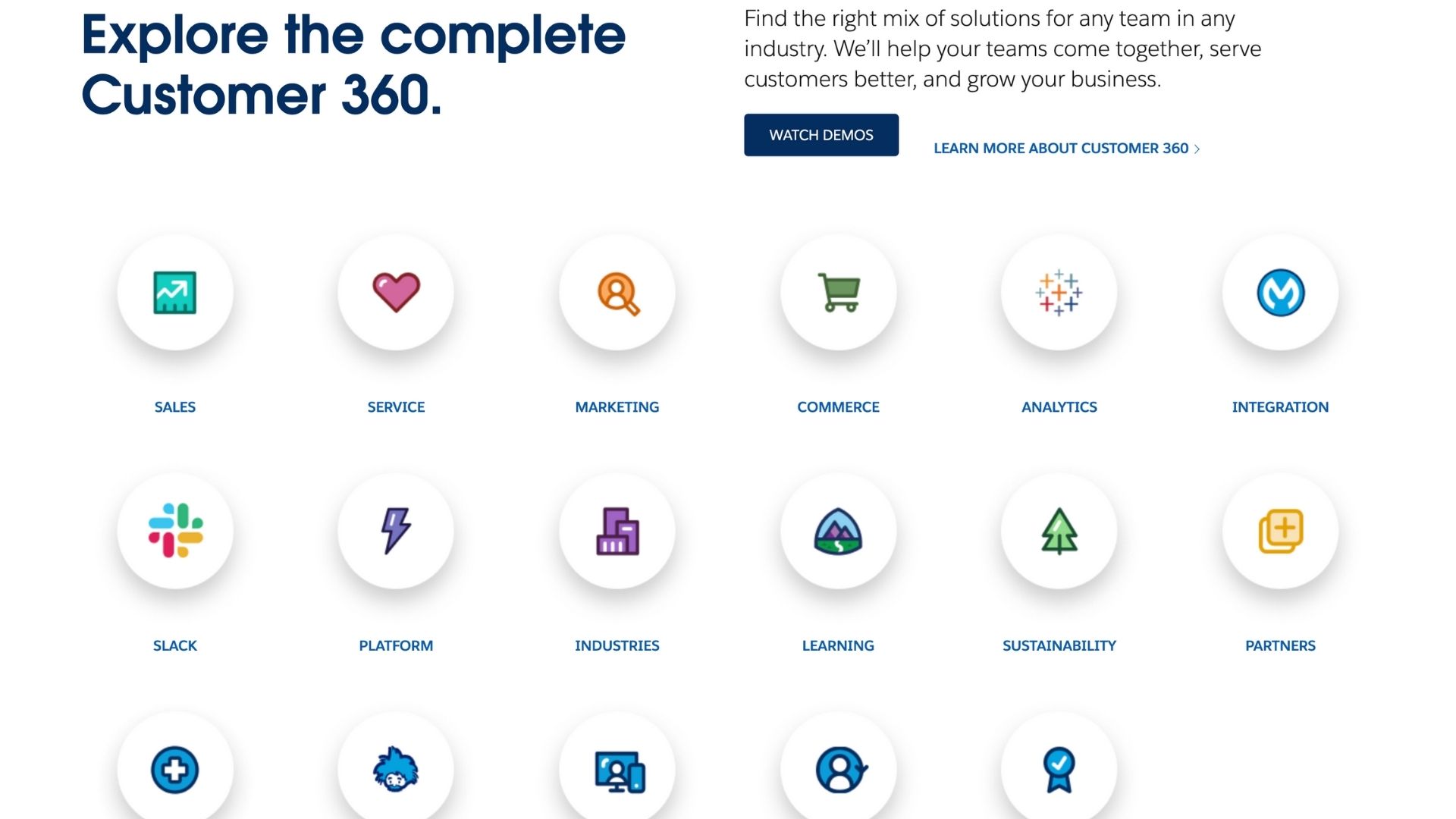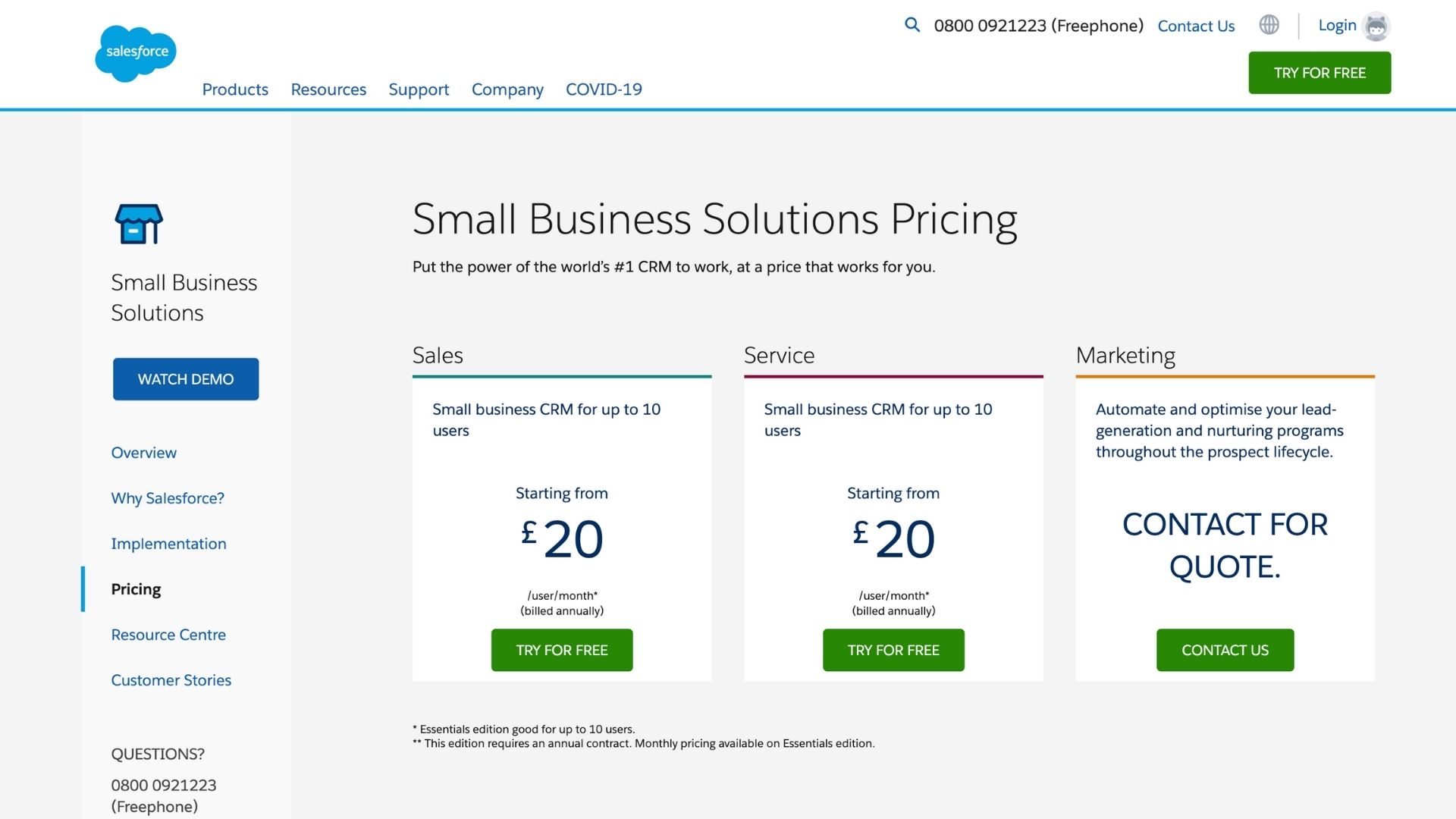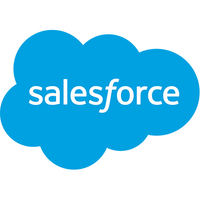What is Salesforce?
Understand how Salesforce can streamline and improve your business practices.

What is Salesforce?
Salesforce is a customer relationship management solution (or CRM) that aligns companies with their customers through sales, marketing, and commerce tools. Salesforce is the CRM market-leader and tops our list of the best CRM software.
What does Salesforce do?
- Salesforce is a platform that consists of a variety of cloud-based CRM applications to assist different teams in streamlining and automating their daily processes. Apps include the Sales Cloud, Marketing Cloud, Commerce Cloud, and Service Cloud, alongside a suite of enterprise solutions focusing on integration, analytics, and business development.
- Customers can opt for an individual product, such as the Sales Cloud or Commerce Cloud, or combine multiple products with Customer 360.
- Customer 360 unites the depth of Salesforce technology within one integrated CRM platform; users can select multiple products and tailor a specific solution to their business demands. With an app for every phase of the customer journey, from lead to loyalty, users can integrate their business data and analytics into the platform.
- No matter the application or plan, Salesforce delivers a simple, clean user interface that is easy to navigate and understand. To help you get started, you can also access online learning and demos that come included with all licenses.
- All new customers can also benefit from a free 30-day trial, with no credit card details needed upfront and no software to install.
Today's best Salesforce deal
Get Salesforce from $25 per user/month
Salesforce is the CRM software market-leader for good reason: it offers a comprehensive suite of customer relationship tools, excellent integration, and unrivalled customization. Follow this link to find out more.
How departments can use Salesforce
Salesforce is split into a variety of products to help individual teams within businesses access the tools needed to help them thrive.
Sales
The Sales Cloud provides a platform to help sales teams close more deals by utilizing tools like contact management, sales forecasting, and process automation. This can benefit teams of all sizes by increasing team member productivity, displaying all sales activities on a single platform, and allowing teams to sell faster and smarter.

Contact management provides a complete view of customers, with activity history, customer communications, and internal account discussions. You’re able to access critical customer data like key contacts and communication history quickly and easily within the Cloud, and enjoy an overview of every customer, with social insights, campaign history, and deals they're involved in.
Sales forecasting also helps teams know where revenue growth stands to help drive more impact with data-driven insights, while process automation can help to streamline daily tasks like activity tracking and workflows.
Marketing
Salesforce’s Marketing Cloud provides intelligent marketing automation to team members, allowing them to nurture relationships and revenue with ads, emails, e-commerce, and social media.
Are you a pro? Subscribe to our newsletter
Sign up to the TechRadar Pro newsletter to get all the top news, opinion, features and guidance your business needs to succeed!
The Marketing Cloud provides a platform to grow with you, offering AI-powered personalization to market to every type of customer as your business grows and trends evolve. Tools like the journey builder allow you to build one-on-one customer journeys across all channels and departments, while the email studio lets you personalize and optimize email campaigns. Plus, you can monitor and engage with your customers across social media channels via the social studio, and target ads using your CRM data to acquire and re-engage customers with the advertising studio.
Customer service
Customer service can provide industry-leading support, solve problems quickly, and offer customers an efficient digital experience with the Salesforce Service Cloud.
The Service Cloud provides a variety of tools to strengthen customer engagement, so you can personalize support to engage with every customer. Customer interactions can be supported on any channel, bringing all digital interactions in one place, while utilizing the services of chatbots can help to alleviate support demand. You can also automate many business processes with intuitive workflows, use smart productivity tools to manage call center interactions, and receive actionable insights into your customer interactions.
Data teams
Alongside the main applications on the Salesforce platform, data teams can access integrations like Tableau to combine and access all business data.
Tableau provides fully integrated data management and AI built directly into Salesforce CRM. Data is made simple through the intuitive drag-and-drop analysis, with data patterns becoming easily apparent through visual patterns. Data insights can also be easily shared across your business to help drive growth.
Salesforce apps—what are they and what do they do?
Salesforce offers a fully customizable experience by allowing you to select which apps or combination of products - and therefore functionality - is right for your business.
With multiple bolt-on applications and pricing plans, you only pay for what you need; opt for an individual application and you can upgrade or add additional products later down the line.
In this section, we'll take a look at the main apps and products that could benefit your business.

Salesforce Service Cloud 360
Salesforce Service Cloud 360 is an application that offers everything you need to provide industry-leading support to your clients, all in one place.
The application allows you to provide customers with an all-digital supportive experience to enhance customer engagement, which is further enhanced by Slack integration.
You can interact with your clients through various channels, receive actionable insight into said interactions, automate business processes with intuitive workflows, and increase revenue through the power of AI.
Salesforce Lightning
Salesforce makes app development and productivity simpler with Lightning—a component-based framework that streamlines business processes and programming for those without prior experience.
Users can utilize the Lightning App Builder to quickly create apps via the drag-and-drop interface without coding, or utilize the Lightning Experience to increase overall productivity.
Other Lightning features include a graphical user interface that’s optimized for speed; the Design System, which provides style guides and UX best practices to aid app creation; and AppExchange for Components, which provides partner components within the App Builder.
Salesforce Pardot
Salesforce Pardot is a marketing automation solution that aims to help you nurture customer relationships and close sales deals with the help of high-quality lead generation tools.
You can identify leads, track campaign engagement, and unite marketing and sales tools to transform your leads into sales, plus create simple landing pages and forms while running targeted email campaigns.
Alongside this, Pardot allows you to automate your most common tasks, allowing you and your team to focus on attracting new clients and growing your business.
Salesforce Chatter
Harness the power of Salesforce’s enterprise social network, Chatter, to enhance collaboration within your business—no matter where your employees are located. Chatter allows you to share expertise and files within your company and externally with partners, encouraging professional connection and growth.
You can use the platform to share insights, ideas, and feedback, and in return will be served with content relevant to you.

How much does Salesforce cost?
Price plans for Salesforce depend on which applications you use and the size of your business. You can opt for individual Cloud software, like Sales, Marketing, or Service, or customize a more tailored approach by utilizing Customer 360 to handpick solutions to suit your business.

Small businesses can benefit from a reduced cost of the Sales, Service, or Marketing Cloud applications for up to 10 users, compared to the larger capacity plans offered to bigger businesses. This starts from $25 per user per month, billed annually.
Larger businesses can opt for individual Cloud packages—both the Sales Cloud and Service Cloud start at $75 per user per month for the Professional plan; $150 for the Enterprise, and $300 per user per month for the Unlimited plan. The size of your businesses and the power and customization required of your CRM will determine which plan is right for you. For a more tailored approach, you’ll need to contact Salesforce directly to receive an accurate quote.
Salesforce FAQ
The most frequently-asked questions about Salesforce.
What is Salesforce 360?
Unlike individual Cloud plans, the Salesforce Customer 360 unites Salesforce technology in one integrated CRM platform, bringing your business and clients together and ensuring perfect alignment. You can utilize Customer 360 to unite your marketing, sales, commerce, service, and IT departments with simple, accessible data in one place—contact Salesforce directly to access a tailored plan and quote for your specific needs.
Do Salesforce products integrate with third-party applications and systems?
Usually, Salesforce products can integrate directly with external applications or systems to assist in connecting your business data.
However, if you don’t have in-built integrations like on-premises data sources (think Power BI), you can purchase a MuleSoft license, use apps on AppExchange, or work with one of Salesforce’s integration partners. Alternatively, you can talk directly with a Salesforce sales representative to understand which integration solution would work best with the products that you already use.
Are there any additional fees?
While Salesforce provides a variety of CRM apps and solutions for your business, you only pay for what you require, whether that’s an individual Cloud license or a more tailored plan. There are no additional fees required unless you choose to add on products or upgrade your plan.
To receive an accurate quote suitable to your business needs, Salesforce recommends ringing its sales department to determine what works for your business.
What support is available to Salesforce customers?
Salesforce offers several support plans to customers through its Success Cloud plans. These allow you to opt for the appropriate level of support you need. The Standard plan comes with all licenses and includes a Help Portal, Trailblazer Community, and Success Center to help users utilize self-guided resources like online learning, demos, and community advice to understand the software.
Alternatively, you can upgrade to the Premiere plan for additional expert help, coaching, and live support, or the Signature plan to add proactive account and incident management, event readiness, and more. Pricing for these services can be accessed by contacting your Salesforce account executive.

Main takeaways
- Salesforce is suitable for a variety of different businesses, offering solutions for small businesses and start-ups, as well as scalable products to support larger enterprises.
- Application licenses can be purchased individually for products like the Sales Cloud or Marketing Cloud, or you can tailor a package to suit your needs by contacting Salesforce.
- While being a technical and powerful platform, Salesforce provides a good level of support to simplify its products. The in-depth online resources make it easier for customers to learn and develop their knowledge of its products.
- Powerful analytics (via Tableau) and features like Opportunity Management make Salesforce a top CRM choice for a reason—the platform is powerful and capable of handling multiple business demands.
- It’s worth utilizing the free 30-day trial of Salesforce software first, as then you can determine which plan is most suitable for your business.
Next steps
If you’d like to know more about the tools and capabilities of Salesforce, check out our full review of Salesfore Service Cloud. Alternatively, take a look at our list of the best free CRM software or the best CRM for small business.
Chelsea is a freelance writer with a degree in journalism from the London School of Journalism and a passion for lifestyle interests, especially as they intersect with consumer and business tech.





